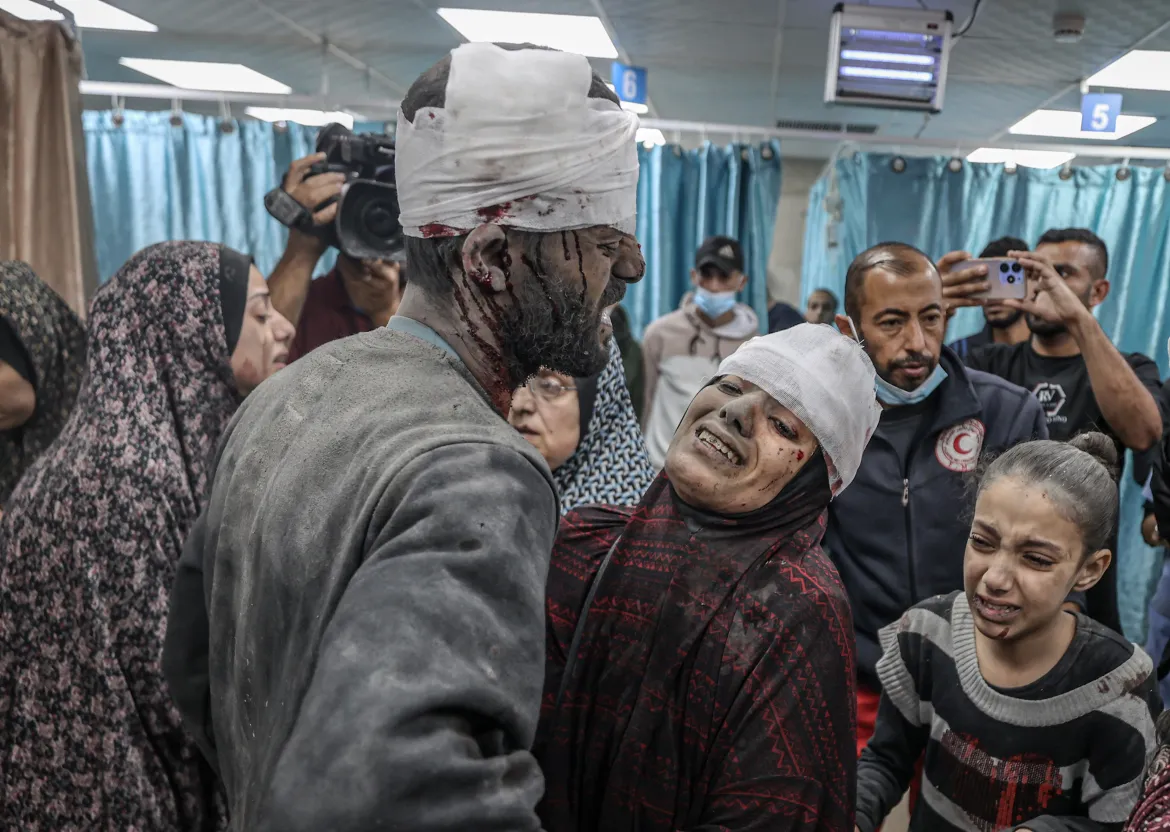In a significant legal decision, an Algerian court upheld the five-year sentence of Boualem Sansal, a prominent writer who holds both Algerian and French citizenship. This ruling has intensified the longstanding frictions between Algeria and France, stemming from Algeria's colonial past.
Sansal, known for his outspoken criticism of Islamist extremism and the Algerian government, was convicted earlier this year for allegedly undermining Algeria’s integrity through remarks favoring Morocco in a territorial dispute. He has been imprisoned for over seven months, causing concern among French officials and human rights advocates.
French Foreign Ministry officials have denounced the court’s decision as unjust, urging the Algerian government to consider a more humanitarian approach toward Sansal, who is believed to be in his 80s and suffering from cancer. The French literary community and activists have compared his situation to that of the renowned author Salman Rushdie, framing it as a severe infringement on free speech.
Algerian President Abdelmadjid Tebboune hinted in a recent interview that Sansal's case is part of a larger political maneuver targeting dissenters within the country. The Algerian government has faced criticism for suppressing political discussions since coming to power in 2019, particularly following its violent liberation struggle from French colonial rule.
Meanwhile, Antoine Gallimard, Sansal’s publisher in France, conveyed that his legal counsel found him to be in relatively good health while imprisoned. The lawyer suggested that Sansal may have a chance of obtaining clemency if he accepts the court's ruling.
As diplomatic relations continue to sour, with mutual accusations and expulsions of diplomats recently, the sanctions leveled against Sansal are becoming emblematic of the nations' unresolved historical issues. Speculation about his potential release persists, particularly in the wake of France’s latest political actions, including supportive stances toward Morocco in the contentious Western Sahara debate.
The case remains a focal point for those advocating for free expression, reflective of broader tensions that echo through the historical narrative shared by France and Algeria.
Sansal, known for his outspoken criticism of Islamist extremism and the Algerian government, was convicted earlier this year for allegedly undermining Algeria’s integrity through remarks favoring Morocco in a territorial dispute. He has been imprisoned for over seven months, causing concern among French officials and human rights advocates.
French Foreign Ministry officials have denounced the court’s decision as unjust, urging the Algerian government to consider a more humanitarian approach toward Sansal, who is believed to be in his 80s and suffering from cancer. The French literary community and activists have compared his situation to that of the renowned author Salman Rushdie, framing it as a severe infringement on free speech.
Algerian President Abdelmadjid Tebboune hinted in a recent interview that Sansal's case is part of a larger political maneuver targeting dissenters within the country. The Algerian government has faced criticism for suppressing political discussions since coming to power in 2019, particularly following its violent liberation struggle from French colonial rule.
Meanwhile, Antoine Gallimard, Sansal’s publisher in France, conveyed that his legal counsel found him to be in relatively good health while imprisoned. The lawyer suggested that Sansal may have a chance of obtaining clemency if he accepts the court's ruling.
As diplomatic relations continue to sour, with mutual accusations and expulsions of diplomats recently, the sanctions leveled against Sansal are becoming emblematic of the nations' unresolved historical issues. Speculation about his potential release persists, particularly in the wake of France’s latest political actions, including supportive stances toward Morocco in the contentious Western Sahara debate.
The case remains a focal point for those advocating for free expression, reflective of broader tensions that echo through the historical narrative shared by France and Algeria.

















